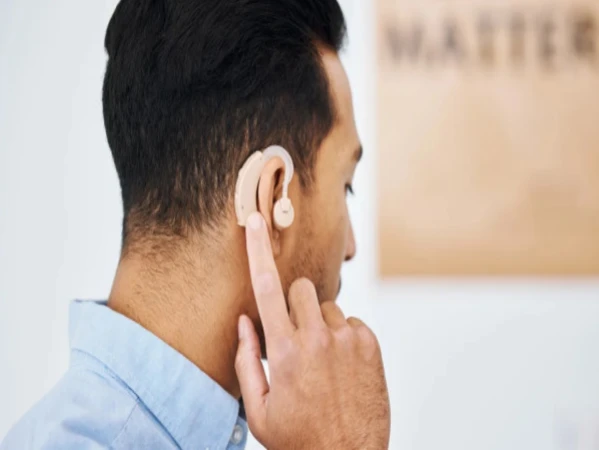Karachi: Hearing aids for individuals with hearing impairment have become significantly more expensive, as these devices are imported from abroad. According to Express, shopkeepers have reported that the price of these devices has increased by 30 to 50 percent. Various factors in Pakistan, including the constant use of mobile phones by young people, traffic noise, air pollution, improper treatment, and others, have led to an increase in hearing issues.
Experts note that after Karachi, major cities like Lahore and Faisalabad are seeing an increase in hearing problems due to excessive traffic noise. A study revealed that 75 percent of traffic police officers suffer from hearing issues, and hearing impairments in newborns are on the rise due to various infections during pregnancy. Approximately 3 percent of newborns are born with hearing problems, and factors like ear infections and congenital complications are major causes of these issues.
Over the past three years, there has allegedly been a 30 percent increase in the number of children facing hearing problems. Dr. Sameer Qureshi, a professor of ENT at Hamdard Medical University Karachi, explained that the price of hearing aids has risen by 30 to 50 percent due to the fluctuating dollar exchange rate, as all these devices are imported, and there is no local manufacturing of medical devices.
He explained that three types of patients require hearing aids: older individuals with presbycusis (age-related hearing loss), those with weakened ear bones, and patients who have ruptured eardrums and do not wish to undergo surgery. Dr. Qaiser Sajjad, a former secretary-general of the Pakistan Medical Association (PMA), told Express Tribune that the price of hearing aids has increased by 40 to 50 percent, making them unaffordable for poor patients.
He mentioned that many poor patients come to them unable to afford hearing aids and prefer to live without them until their hearing deteriorates. He also emphasized that prolonged exposure to noise, especially in older people and those living in noisy environments, significantly affects hearing. He clarified that, just as eyeglasses are prescribed after an optometry test, hearing aids are recommended after an audiology test.
Dr. Qaiser also highlighted that the traffic noise most severely affects traffic police officers, and the government has failed to provide them with protective equipment, which is the government’s responsibility. He mentioned that each year, approximately 3 to 5 percent of people across the country, including Karachi, are affected by hearing problems, particularly from loud noises.
Irfan Ahmed, a manager of a company dealing with exports in Clifton, Karachi, shared that constant exposure to traffic noise and other reasons had impaired his hearing. He purchased two hearing aids for 35,000 rupees after consulting an ENT doctor. He noted that hearing aids are available in various qualities and price ranges in the market.
Shahida Begum, a 55-year-old woman from North Karachi, stated that due to an ear drum issue, she has been using hearing aids for the past 20 years. Over the last two years, the prices of these devices have increased by 30 to 50 percent. She relies on a charitable family to help her afford hearing aids.
A shopkeeper in Saddar, Rahim Baig, explained that all hearing aids are imported, with prices ranging from 3,000 to over 100,000 rupees. The price increase of 30 to 50 percent is due to the fluctuating dollar exchange rate. People with hearing loss buy hearing aids according to their financial situation, and some NGOs distribute hearing aids free of charge to poor patients.
High-quality hearing aids from internationally recognized brands are available globally, offering a range of features to address different levels of hearing loss. These devices are also available in major cities like Karachi, Lahore, and Islamabad, with fitting and adjustment services.
The price of hearing aids varies based on their features. Entry-level models are more affordable compared to premium options. If you’re considering a purchase, it’s recommended to consult an audiologist to find the best device for your needs.







